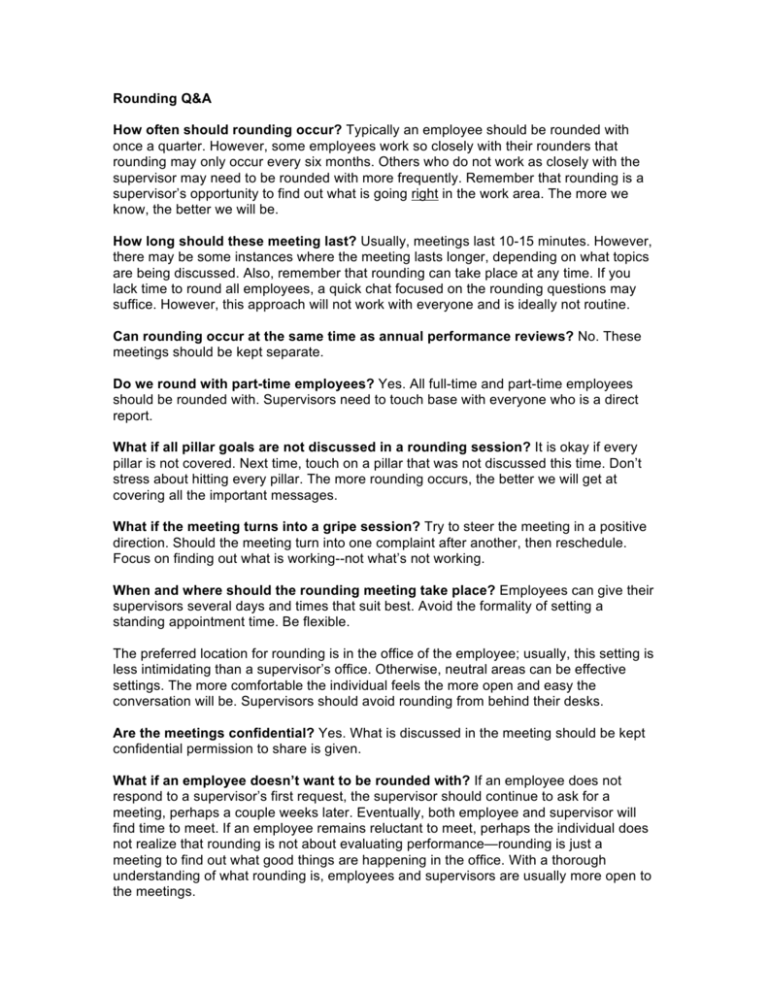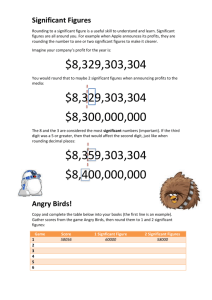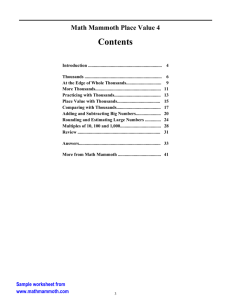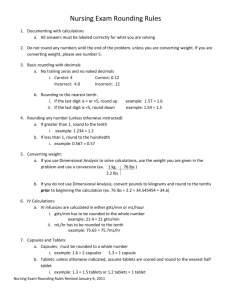Rounding FAQs
advertisement

Rounding Q&A How often should rounding occur? Typically an employee should be rounded with once a quarter. However, some employees work so closely with their rounders that rounding may only occur every six months. Others who do not work as closely with the supervisor may need to be rounded with more frequently. Remember that rounding is a supervisor’s opportunity to find out what is going right in the work area. The more we know, the better we will be. How long should these meeting last? Usually, meetings last 10-15 minutes. However, there may be some instances where the meeting lasts longer, depending on what topics are being discussed. Also, remember that rounding can take place at any time. If you lack time to round all employees, a quick chat focused on the rounding questions may suffice. However, this approach will not work with everyone and is ideally not routine. Can rounding occur at the same time as annual performance reviews? No. These meetings should be kept separate. Do we round with part-time employees? Yes. All full-time and part-time employees should be rounded with. Supervisors need to touch base with everyone who is a direct report. What if all pillar goals are not discussed in a rounding session? It is okay if every pillar is not covered. Next time, touch on a pillar that was not discussed this time. Don’t stress about hitting every pillar. The more rounding occurs, the better we will get at covering all the important messages. What if the meeting turns into a gripe session? Try to steer the meeting in a positive direction. Should the meeting turn into one complaint after another, then reschedule. Focus on finding out what is working--not what’s not working. When and where should the rounding meeting take place? Employees can give their supervisors several days and times that suit best. Avoid the formality of setting a standing appointment time. Be flexible. The preferred location for rounding is in the office of the employee; usually, this setting is less intimidating than a supervisor’s office. Otherwise, neutral areas can be effective settings. The more comfortable the individual feels the more open and easy the conversation will be. Supervisors should avoid rounding from behind their desks. Are the meetings confidential? Yes. What is discussed in the meeting should be kept confidential permission to share is given. What if an employee doesn’t want to be rounded with? If an employee does not respond to a supervisor’s first request, the supervisor should continue to ask for a meeting, perhaps a couple weeks later. Eventually, both employee and supervisor will find time to meet. If an employee remains reluctant to meet, perhaps the individual does not realize that rounding is not about evaluating performance—rounding is just a meeting to find out what good things are happening in the office. With a thorough understanding of what rounding is, employees and supervisors are usually more open to the meetings.






